Self Hosting: Security Impacts Explored
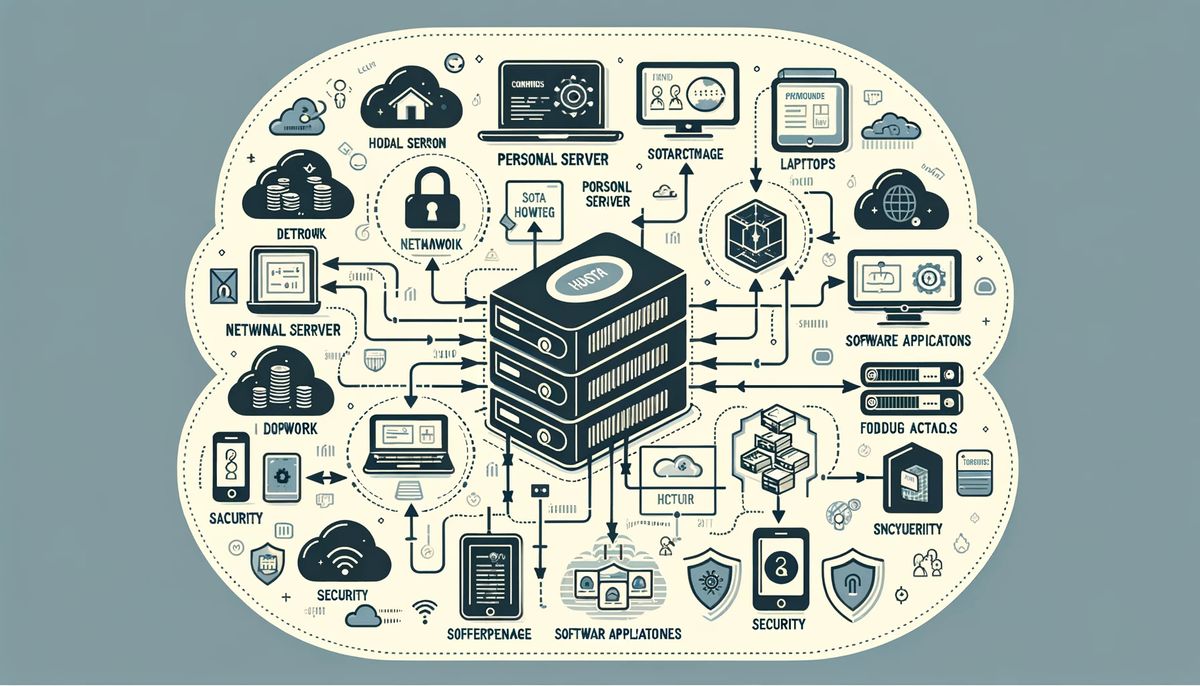
Introduction
Self-hosting is all about what you want to have on your server. You set up and maintain your own server or system to run your website or service. You have more control, but you also have more responsibilities.
When you self-host a website or service, you want to keep it safe from hackers, viruses, and other attackers. So, self-hosting security is all about taking measures to protect your own system, data, and users.
Threats
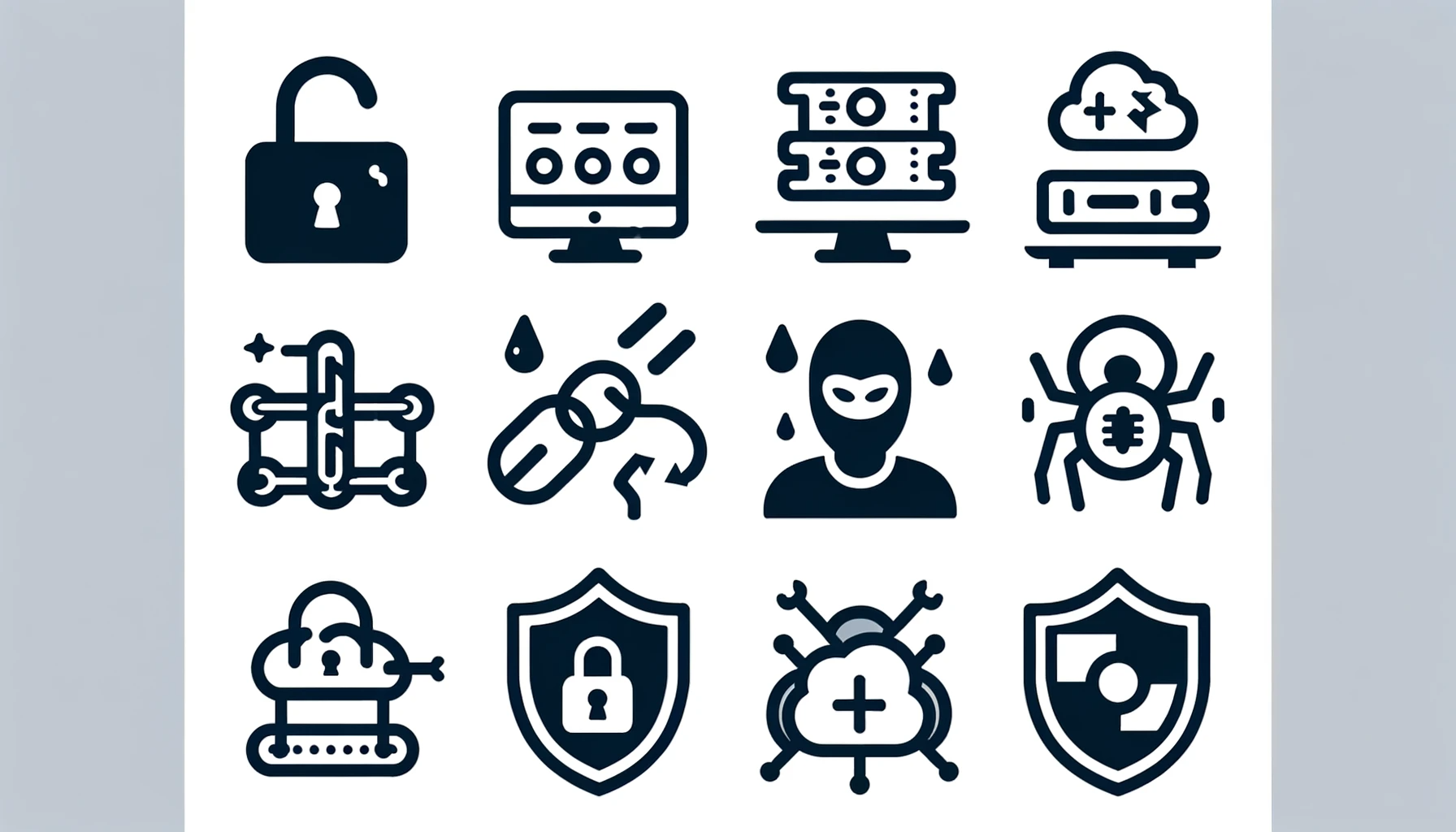
As previously discussed, Self-hosting has more control but also has more responsibilities. Some of the threats that come are mentioned below :
- Unauthorized Access: Hackers might try to access your server or website without permission.
- Server Overload or Distributed Denial of Service (DDoS) Attacks: If too many people visit your website at once and your server isn’t prepared, it might crash or slow down.
- Resource Limitations: Servers have finite resources like bandwidth, storage, and processing power. When these resources are consumed, the server might slow down or become inoperative.
- Software Vulnerabilities: Outdated or improperly configured software can leave your server open to potential attacks or malfunctions.
- Legal and Compliance Issues: If you don't adhere to regulations, licensing agreements, or copyright laws, you can face legal challenges.
- Unexpected Hardware Failures or Infrastructure Issues: Unexpected technical malfunctions can disrupt server operations.
Safety Measures
Wait a minute we have a solution for all the threats mentioned above. let's discuss all of them one by one.
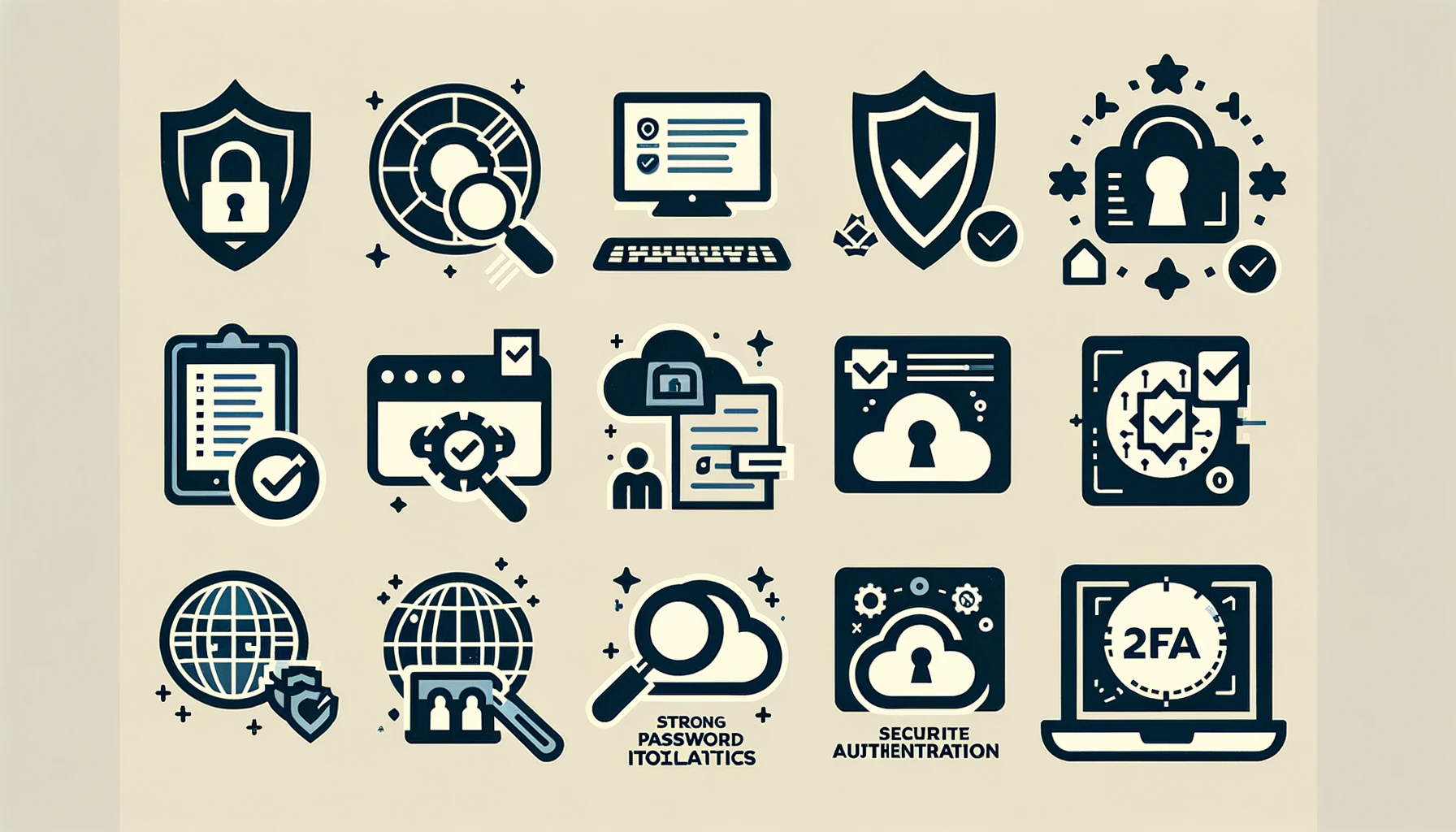
Unauthorized Access:
- Strong Authentication: Use really good passwords and maybe a second way to prove it's really you, like getting a one-time password.
- Firewalls: Ensures the entry of only authenticated users.
- Regular Updates: Keep your software updated to protect against new threats.
- User Management: Allow only authenticated users.
Server Overload & DDoS Attacks:
- Scaling: As the number of users increases capacity to adhere should also be increased.
- DDoS Protection Services: Keeping out troublemakers who want to overcrowd the Server. Cloudflare and Akamai are two popular tools.
- Load Balancers: Distribute incoming users by having multiple servers, so that the server can work smoothly.
Resource Limitations:
- Server Monitoring: continuously monitoring the resources. Use tools to monitor server resource usage to anticipate and address resource limitations.
- Optimize: make sure resources are organized properly so they can be used efficiently.
- Expand Resources: If your server needs more power, give it extra stuff like memory or storage. Upgrade or add more server resources as needed (like RAM, CPU, storage).
Software Vulnerabilities:
- Regular Updates: Always keep your software, plugins, and operating system updated.
- Security Audits: Regularly check and review servers for vulnerabilities.
- Backup: Always keep a backup of your data so that in case of any issue you can restore it.
Legal and Compliance Issues:
- Stay Informed: Be aware of the international and local rules and regulations that apply to your content, operation, and audience.
- Legal Consultation: Consider seeking advice from legal professionals on matters like copyright, data protection, or other pertinent issues.
- Content Management: Regularly review and ensure all hosted content adheres to applicable laws.
Unexpected Hardware Failures & Infrastructure Issues:
- Redundancy: Have backup hardware components or even backup servers to quickly switch over in case of failure.
- Regular Maintenance: Periodically check and maintain server hardware.
- Disaster Recovery Plan: Have a plan detailing how to recover data and operations in case of severe incidents or failures.
- Offsite Backups: Store backups in a separate location to protect against data loss due to disasters like fires or floods.
Always be aware of the ongoing threats and take necessary measures as soon as possible.
Is it beneficial to switch from shared to dedicated hosting?
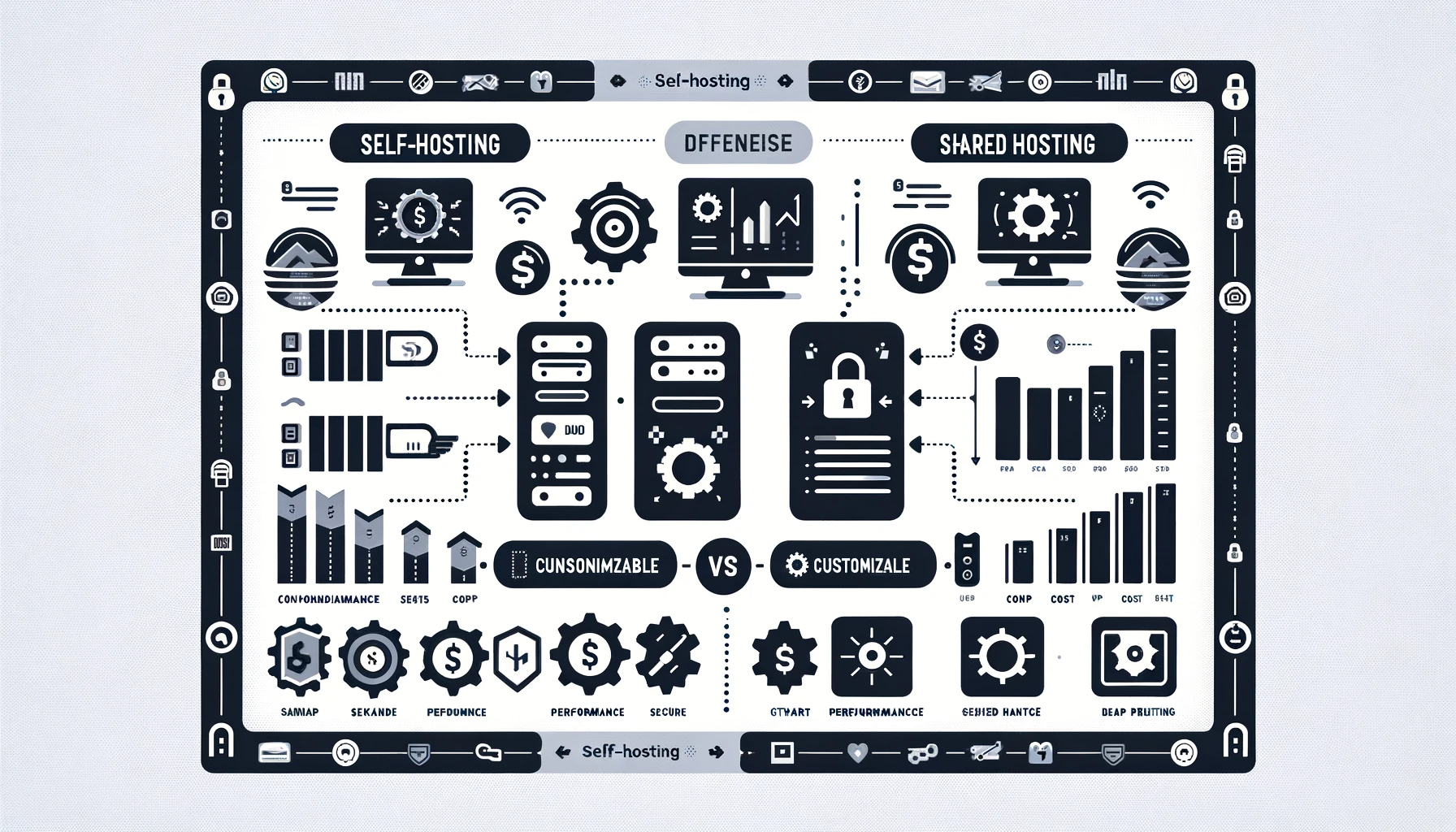
Switching from shared to dedicated hosting comes up with advantages such as increased control and performance. but it also involves some of the threats some of which are already being discussed. In self-hosting you have to manage everything earlier it is the service provider who takes care of it. Depending on the service provider, you might have less "hand-holding" support available. This means if something goes wrong, you may need more technical expertise to resolve it.
Above all these points one of the most important concern is security and here in dedicated hosting we have some advantages such as :
- Full Control
- Dedicated Resources
- Isolation from Other Users
- Strict Access Control
- Advanced Firewall Rules
- Regular and Custom Backups
- Direct OS and Software Updates
- Greater Privacy
Examples
Nextcloud

Nextcloud is committed to provide self hosted open source cloud file storage technology that is a perfect fit for the privacy and security of your enterprise.
Jellyfin

Jellyfin is a volunteer-built media solution that puts you in control of your media. Stream to any device from your own server, with no strings attached. Your media, your server, your way.
Home Assistant

Open source home automation that puts local control and privacy first. Powered by a worldwide community of tinkerers and DIY enthusiasts. Perfect to run on a Raspberry Pi or a local server.
Seafile

Seafile is an open-source file sync&share solution designed for high reliability, performance, and productivity. Sync, share and collaborate across devices and teams. Build your team's knowledge base with Seafile's built-in Wiki feature.
ownCloud

Convenient collaboration with internal and external parties without storing data in the public cloud. Open APIs and modularity let you integrate almost everything into your own Cloud – Data sovereignty by design.
Emby

Bringing all of your home videos, music, and photos together into one place has never been easier. Your personal Emby Server automatically converts and streams your media on the fly to play on any device.
Mattermost

Mattermost provides a familiar user interface, fast performance, and a complete set of user collaboration tools and features - it stands out by providing a self-managed installation option for better integration with existing IT assets and more control over data storage. We love Mattermost because it works perfectly for our company structure (freelance resource collaboration on projects) and we know our data is safe and exportable.
Rocket.Chat

use communication platforms on a daily basis to collaborate with colleagues, other companies, customers and communities. Most of them give you very little in terms of control and customizations; except Rocket.Chat.
FAQ
- Why hosting security is important? Hosting is important because of several reasons such as: Protection of Sensitive Data Maintaining Website Integrity Protecting Against Malware
- How do I secure my web hosting services? Securing your web hosting services involves a combination of best practices, technical measures, and constant vigilance.
- What is the safest type of self-hosting? The "safest" type of self-hosting depends on various factors including your technical expertise, the nature of the data you're handling, and your specific security requirements.
- Why self self-hosting better? Self-hosting can offer several advantages over using third-party hosting services, depending on your specific needs and capabilities.
Conclusion
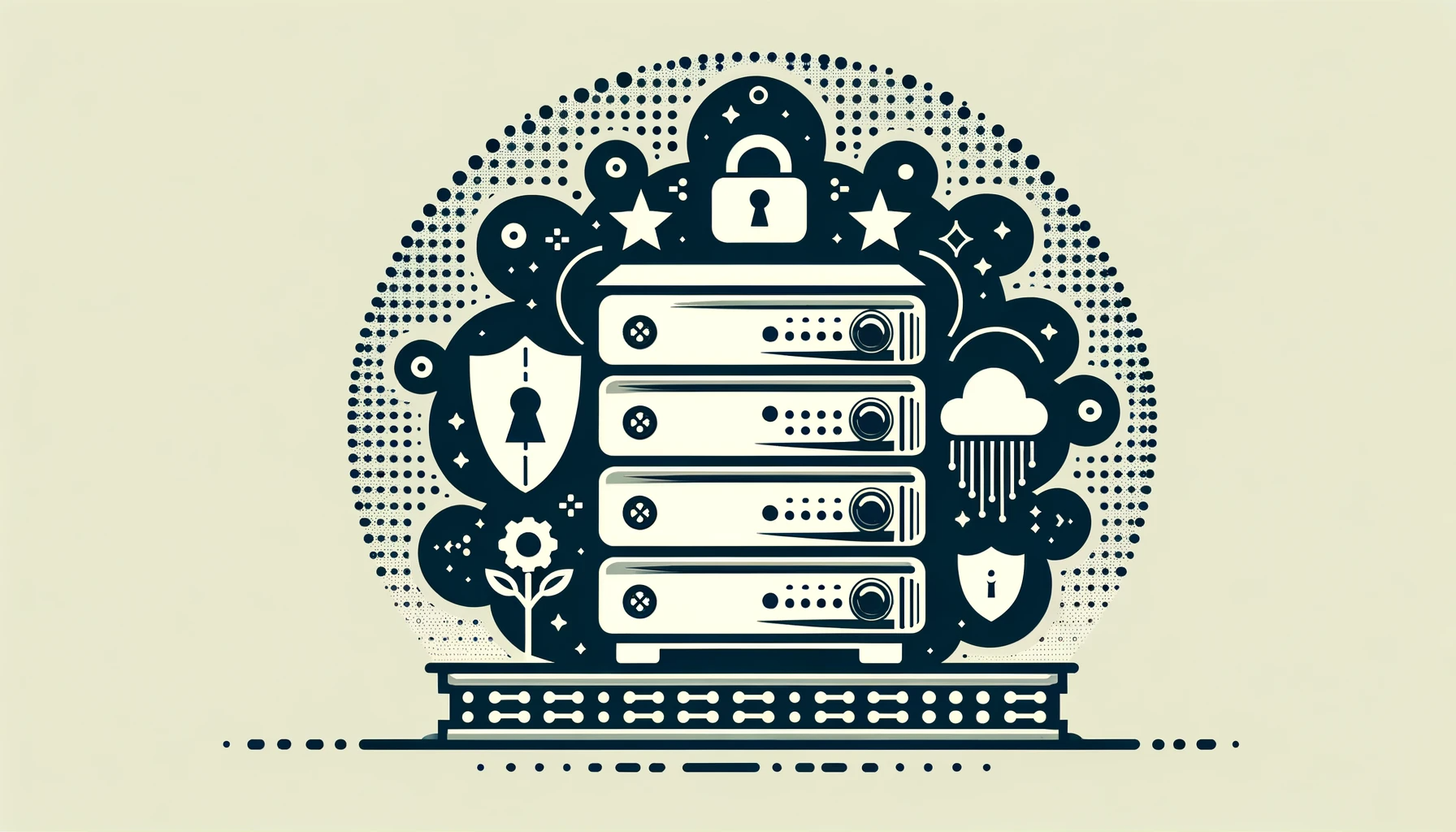
Self-hosting, often through dedicated servers, offers significant security advantages over shared hosting, primarily due to the control and customization it provides. However, with this control comes a greater responsibility to ensure the server's security, performance, and compliance. It's crucial to be proactive, stay informed, and possibly seek expert assistance to fully leverage the benefits and mitigate the risks associated with self-hosting.